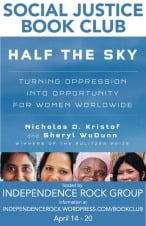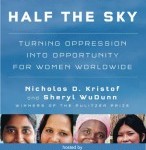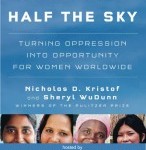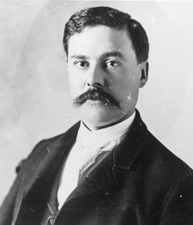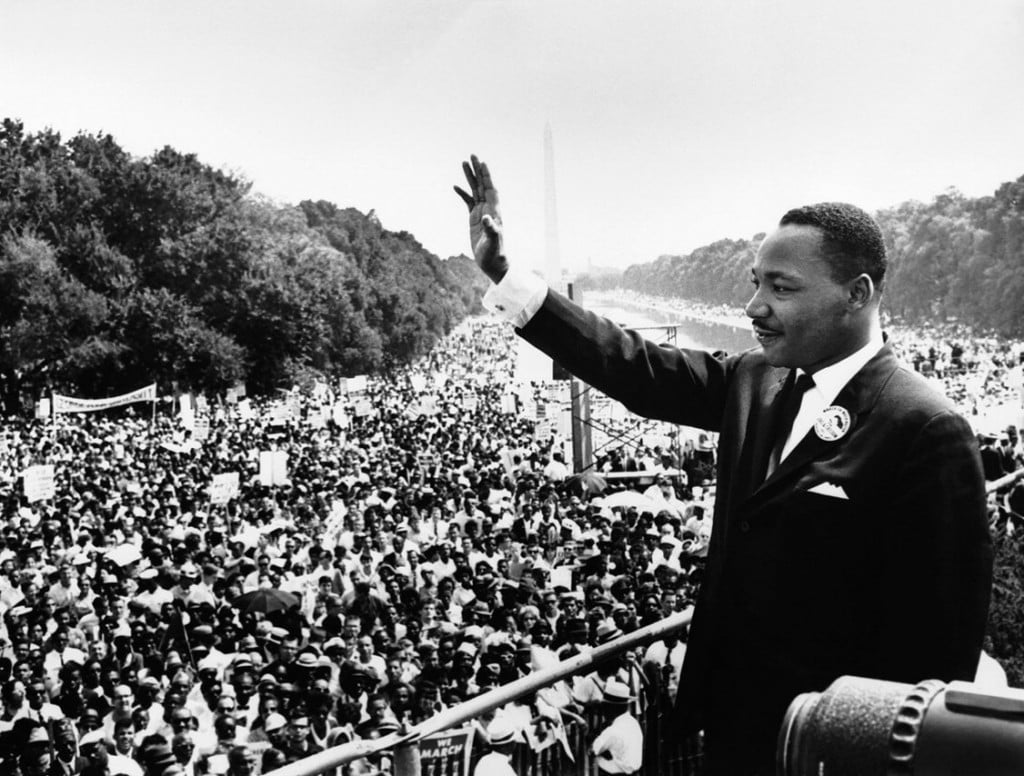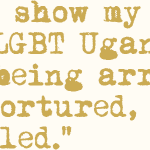This post is part of the April Social Justice Book Club. This week we are discussing Half the Sky: Turning Oppression into Opportunity for Women Worldwide by Nicholas D. Kristof and Sheryl WuDunn.
If you watch just one video from this series, watch this one!
Conversation Questions for Chapter Ten:
Assuming one is not vegetarian, can you imagine being so poor that your family can only eat meat once a year as did Dai Manju’s family?
Dai Munji’s story is the model of a successful foreign aid story. Pg. 169 What made it so successful? Can it be replicated?
“Foreign assistance is difficult to get right, and it sometimes is squandered. Yet it is equally clear that some kinds of aid do work; those that have been most effective have involved health and education.” Pg. 178
Did the authors provide convincing evidence that foreign aid projects are worthwhile? Even if we focus our efforts on health and education projects, how do we choose projects that will do no harm and would be of benefit to the recipients?
Source: The above questions come from the organization Global Women.
Please share with us your responses to the questions above or any thoughts or questions you have about investing in Education in the comments section below.
The Social Justice Book Club is a project of Independence Rock Group: Center for Faith, Ethics, and Social Justice. Please consider supporting the Social Justice Book Club and our other projects. Find other posts about the Book Club and Half the Sky here.
